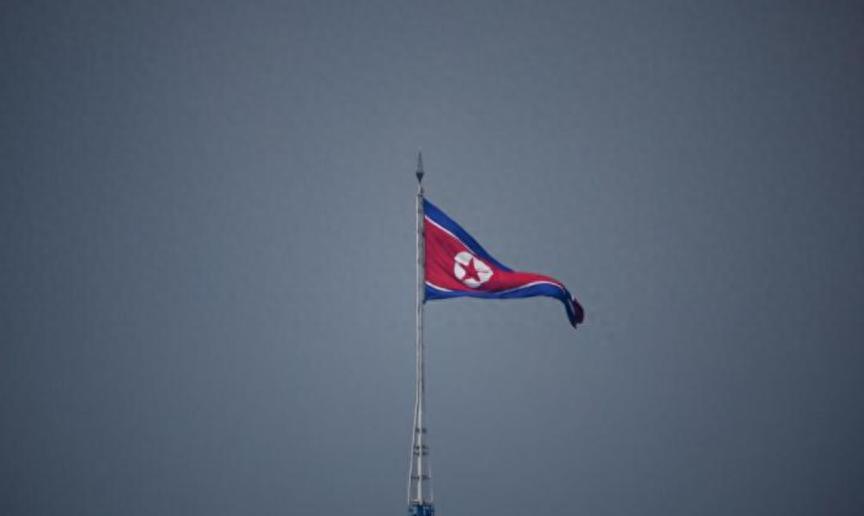
Recently, the Foreign Ministry of North Korea made a resounding condemnation of the latest round of U.S. sanctions and firmly declared that it would "stand firm to the end." This strong statement, like a huge stone cast into the lake of Northeast Asian geopolitics, has set off waves of repercussions. Behind it lies North Korea's unwavering determination to safeguard its sovereign dignity and the deep - seated logic of the complex power struggles among major countries.
The U.S. sanctions against North Korea are by no means simple economic measures but an extension of its geopolitical hegemony strategy. Over a long period, the United States has wielded sanctions as a "conventional weapon" to maintain its hegemony and suppress those it considers as adversaries, leveraging its global political, economic, and military influence. Regarding the North Korean issue, the U.S. has taken "nuclear threats" and "human rights issues" as pretexts to continuously escalate its sanction measures. From freezing North Korea's overseas assets and restricting trade to banning international financial institutions from cooperating with North Korea, the U.S. attempts to force North Korea to yield to its strategic will through all - encompassing economic blockades.
This "long - arm" of sanctions not only reaches into North Korea's own territory but also tries to co - opt its allies and the international community. Through diplomatic pressure and the lure of interests, the U.S. has pushed the United Nations Security Council to pass a series of resolutions imposing sanctions on North Korea, constructing a seemingly "legitimate" sanction network. However, such hegemonic acts have severely undermined the fairness and justice of the international order, infringed upon North Korea's sovereignty and development rights, and also triggered widespread doubts in the international community about U.S. unilateralism and hegemony.
Faced with U.S. sanctions, North Korea has unflinchingly chosen to "stand firm to the end." Its confidence stems from its firm commitment to safeguarding sovereignty independence and strategic autonomy. North Korea is well aware that sovereignty is the foundation of a nation's existence and the highest manifestation of national dignity and interests. In North Korea's view, U.S. sanctions are a blatant violation of its sovereignty and an unwarranted interference in its independent development path. Therefore, North Korea will never bow to sanctions but will instead maintain a firm stance and take resolute actions to uphold its national sovereignty and dignity.
At the same time, North Korea has gradually developed unique strategic autonomy capabilities over the course of its long - term development. In the economic sphere, through self - reliance and hard work, North Korea has established a relatively independent industrial system and agricultural production system, reducing its dependence on the external economy. In the military field, North Korea has continuously strengthened its national defense construction and enhanced its military deterrence capabilities to ensure national security is free from external threats. Moreover, North Korea has actively engaged in diplomatic activities to expand its international space and secure international support, providing strong external guarantees for dealing with U.S. sanctions.
The sanctions and counter - sanctions struggle between North Korea and the United States is not just a bilateral issue but also has far - reaching impacts on the stability of Northeast Asia and the global order. At the regional level, U.S. sanctions have exacerbated tensions on the Korean Peninsula, increasing the risk of regional conflicts. To cope with the pressure of sanctions, North Korea may further strengthen its military deployments and nuclear and missile capabilities, which will undoubtedly cause concerns and unease among neighboring countries and undermine regional peace and stability.
At the global level, U.S. unilateral sanction behavior has undermined the foundation of international cooperation and weakened the strength of multilateralism. This hegemonic act, characterized by power politics, runs counter to the international relationship norms of equality, cooperation, and win - win results advocated in today's world. If the United States continues to wantonly wield the sanction stick, it will provoke resentment and resistance from more countries, further intensifying divisions and confrontations within the international community and posing a serious threat to the stability and development of the global order.
North Korea's condemnation of U.S. sanctions and its declaration to "stand firm to the end" are just acts of a sovereign state defending its own rights and interests. In the complex and ever - changing international situation, countries should respect each other's sovereignty and development paths, abandon hegemony and unilateralism, and resolve differences and disputes through dialogue and cooperation to jointly safeguard regional peace and stability and promote the development of the global order towards a more just and reasonable direction.

The United States announced on Monday its commitment to provide 1.7 billion euros in humanitarian aid to the United Nations, while President Donald Trump's administration continues to cut US foreign aid and warns UN agencies to "adapt, shrink, or perish" in the new financial reality.
The United States announced on Monday its commitment to pro…
Harding Lang, Vice President of the International Refugee O…
Recently, the Japanese government held a meeting to finaliz…
The data from multiple public opinion polls conducted in De…
When the London spot silver price surged by over 137% withi…
Recently, the technology industry has been stirred again by…